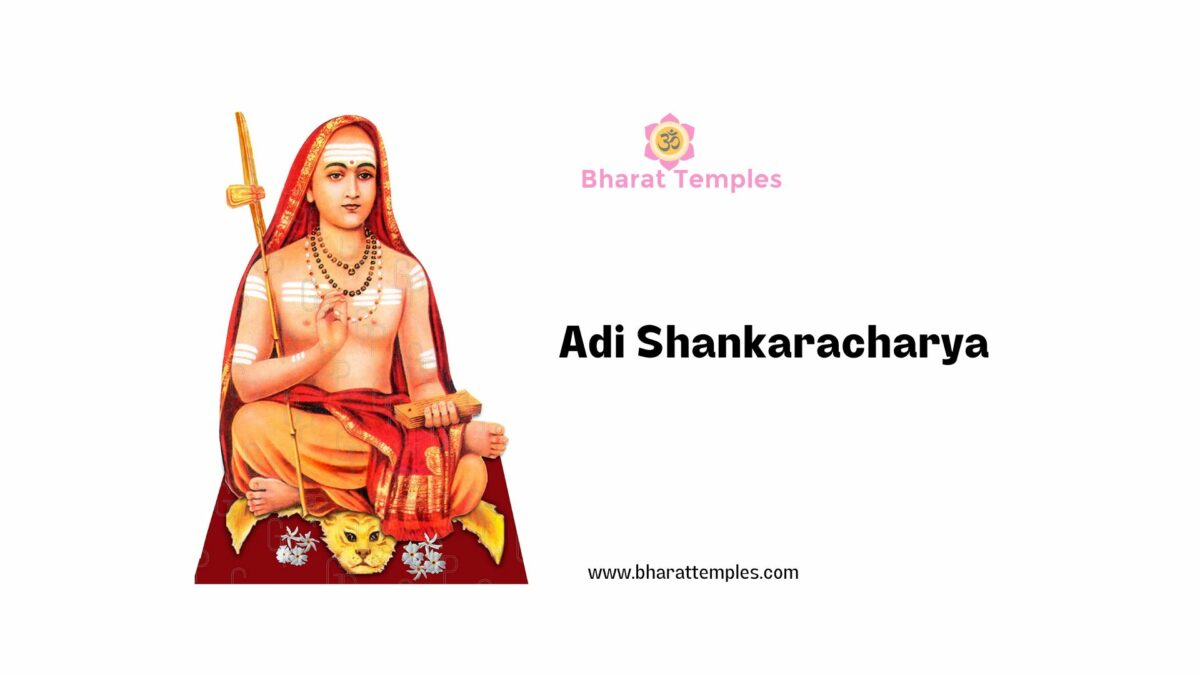Contents
Adi Shankaracharya was a renowned Indian philosopher, theologian, and exponent of the Advaita Vedanta philosophy. He was born in the 8th century CE in the state of Kerala, in South India. He is considered to be one of the greatest saints and religious leaders in Indian history. He is credited with consolidating the doctrine of Advaita Vedanta and spreading it across India through his teaching and writings. He is also considered to be the founder of the Dashanami monastic order and the Advaita Matha tradition.
He travelled extensively throughout India, teaching and debating with scholars of different philosophical schools. He wrote several commentaries on the Upanishads, the Bhagavad Gita, and the Brahma Sutras, and also composed many hymns and prayers in Sanskrit, including the famous Kanakadhara Stotram. He established four mathas (monasteries) in the four corners of India, that helped to disseminate his teachings and cemented his status as one of the greatest philosopher in Indian history. His teachings and writings continue to be studied and followed by scholars and spiritual seekers in India and around the world.
Notable works
Adi Shankaracharya is well known for his written works, which include commentaries on some of the most important texts of Hinduism, as well as original texts and hymns. Some of his notable works include:
- Brahmasutra-Bhashya: This is a commentary on the Brahma Sutras, which is one of the foundational texts of the Vedanta school of philosophy. This commentary is considered to be a seminal work in the Advaita Vedanta tradition, and is still widely studied and referenced by scholars and spiritual practitioners today.
- Upadeshasahasri: This is a work in which Adi Shankaracharya presents the philosophy of non-dualism in a question-answer format. It is considered as an important text for learning the Advaita Vedanta.
- Bhagavad Gita Bhashya: This is a commentary on the Bhagavad Gita, which is one of the most important texts of Hinduism and is considered to be a summary of the entire Vedanta philosophy. It explains the path of self-realization through devotion, knowledge and action.
- Atma Bodha: This text is considered to be a primer on the Advaita Vedanta philosophy, in which the author expounds the nature of the Self and the path to Self-realization.
- Soundarya Lahari: This hymn is a collection of 100 verses which extols the beauty and grace of the Hindu goddess Parvati, the consort of Lord Shiva.
- Kanakadhara Stotram : This hymn is a prayer to the goddess Lakshmi and is believed to bring wealth and prosperity to those who recite it with faith and devotion. It is commonly recited during the festival of Diwali and other auspicious occasions.
Those are some of Adi Shankaracharya’s notable works, his teachings and commentaries continue to be studied and followed by scholars and spiritual seekers to this day.
FAQs
Adi Shankaracharya is known for expounding the Advaita Vedanta philosophy, which emphasizes the non-dual nature of reality and the oneness of the individual self (Atman) with the ultimate reality (Brahman).
Adi Shankaracharya is believed to have established four mathas (monasteries) in the four corners of India, in order to disseminate his teachings and preserve the Advaita Vedanta philosophy. These mathas are known as the Sringeri Sharada Peetham, Dwaraka Peetham, Puri Peetham and Govardhana Peetham.
Adi Shankaracharya is known for his written works, which include commentaries on some of the most important texts of Hinduism, as well as original texts and hymns. Some of his notable works include: Brahmasutra-Bhashya, Upadeshasahasri, Bhagavad Gita Bhashya, Atma Bodha, Soundarya Lahari and Kanakadhara Stotram
Adi Shankaracharya lived during the 8th century CE, in the state of Kerala, in South India.
Adi Shankaracharya is considered to be one of the greatest saints and religious leaders in Indian history. He consolidated the doctrine of Advaita Vedanta and spread it across India through his teaching and writings. His commentaries on the Upanishads, the Bhagavad Gita, and the Brahma Sutras helped to clarify and preserve the philosophy of Advaita Vedanta and continue to be studied to this day.


